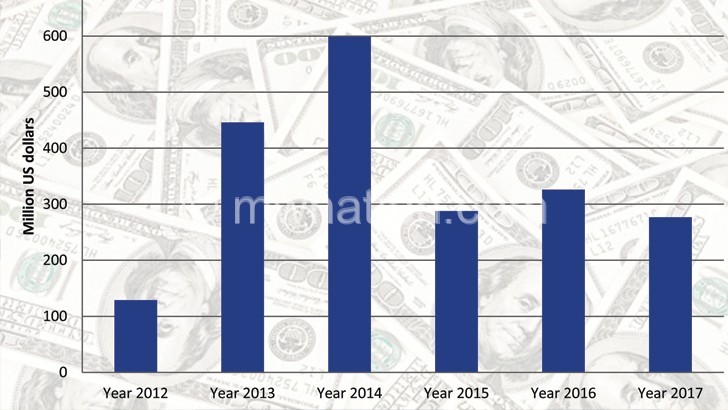Malawi FDI inflows unstable—Report
Malawi’s foreign direct investments (FDI)—the flow of capital between countries—have been fluctuating in the recent past, despite various ambitious initiatives to increase the inflows.
Figures released by the United Nations Conference on Trade and Development (Unctad) this week show that FDIs to Malawi have been fluctuating from $129 million (K94 billion) in 2012, $446 million (K327 billion) in 2013, $599 million (K439 billion) in 2014, $288 million (K211 billion) in 2015, $326 million (K239 billion) in 2016 and $277 million (K203 billion) last year.
The development has made Malawi to be one of the countries with lowest levels of FDI in Africa.
Catholic University dean of social sciences Gilbert Kachamba, in an interview on Monday, described the fluctuation as an indication that there are many supply side constraints hindering FDI inflows.
He said although the fluctuations are normal, if not addressed they will affect FDI inflows.
“It is worrisome that we are moving up and down some band. There are many supply side constraints hindering FDI attraction. All these, if not addressed, will affect FDI inflow negatively,” he said.
FDI is one way of compensating for the lack of domestic investment, and can help kick-start the process of economic development as well as create jobs, increase productivity and reduce importation.
An analysis of the country’s investment policies by the United Nations Economic Commission for Africa (Uneca) shows that Malawi’s investment policies have been principally dedicated to trade liberalisation, promotion and facilitation with a few investment conditions to reduce restrictions and promote sector-specific liberalisation.
For instance, in the past three years, Malawi has been on the overdrive to attract FDI largely through Malawi Investment Forum (MIF) 2015, 2016 and 2018, the first ever Malawi the China Investment Forum and the Malawi-Japanese Investment Forum.
Through the Malawi Investment Trade Centre (Mitc), Malawi has also established a one-stop service centre where all crucial institutions in the investment registration process are operating under one roof.
Mitc public relations manager Deliby Chimbalu is upbeat that such reforms will reinforce the attractiveness of Malawi as a conducive investment destination.
In the 2018 Annual Economic Report, the Ministry of Finance, Economic Planning and Development admits the challenges the country is facing to attract FDI.
“This can be explained by several challenges that the economy is facing, including high transportation costs, unreliable supply of water and electricity, high import duties and high corruption,” reads the report in part.
Over the past five years, leading sources of FDI include Australia, China, India, the Republic of Korea, South Africa, the United Arab Emirates, the United Kingdom of Great Britain and Northern Ireland and South Africa.






